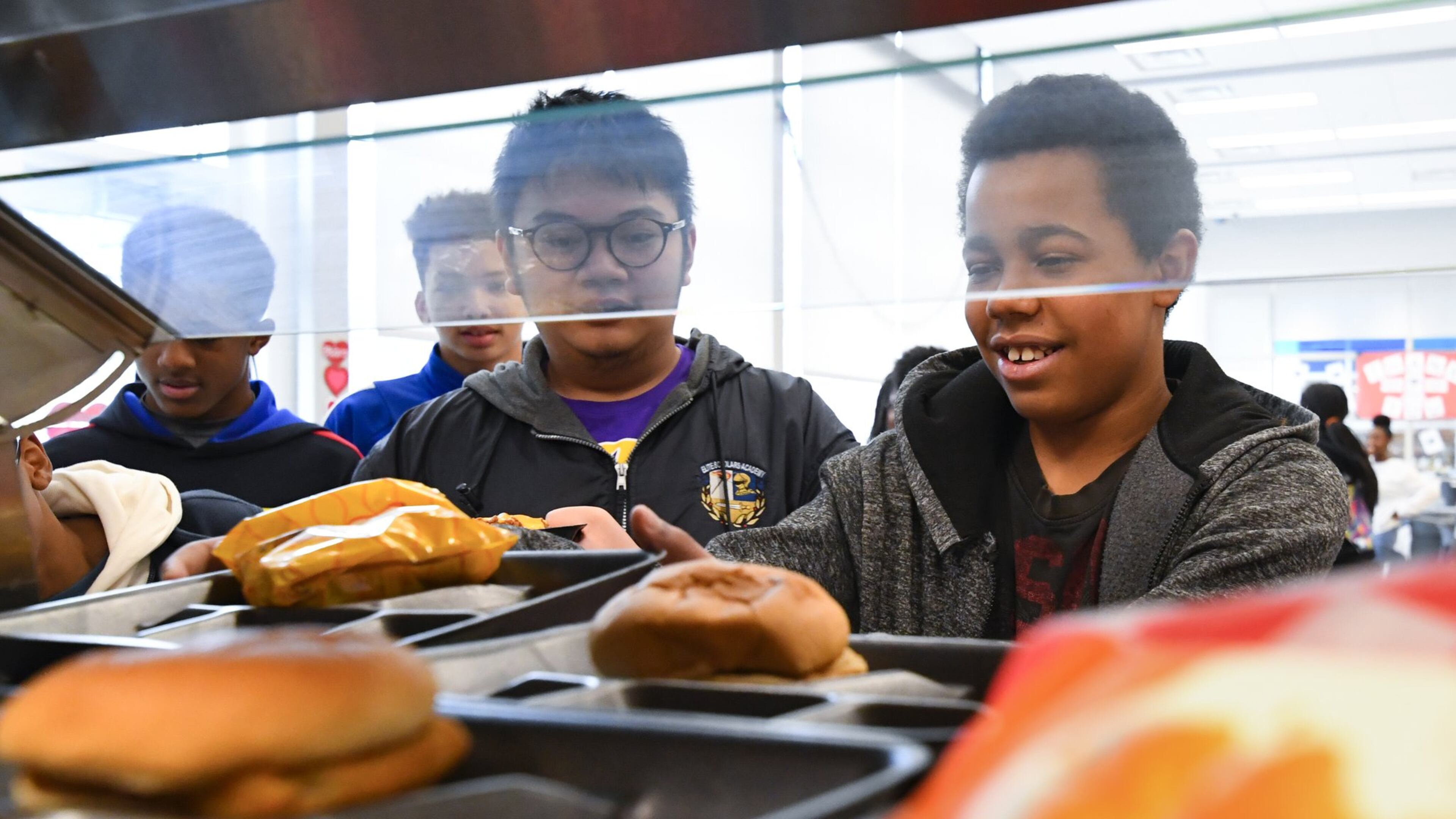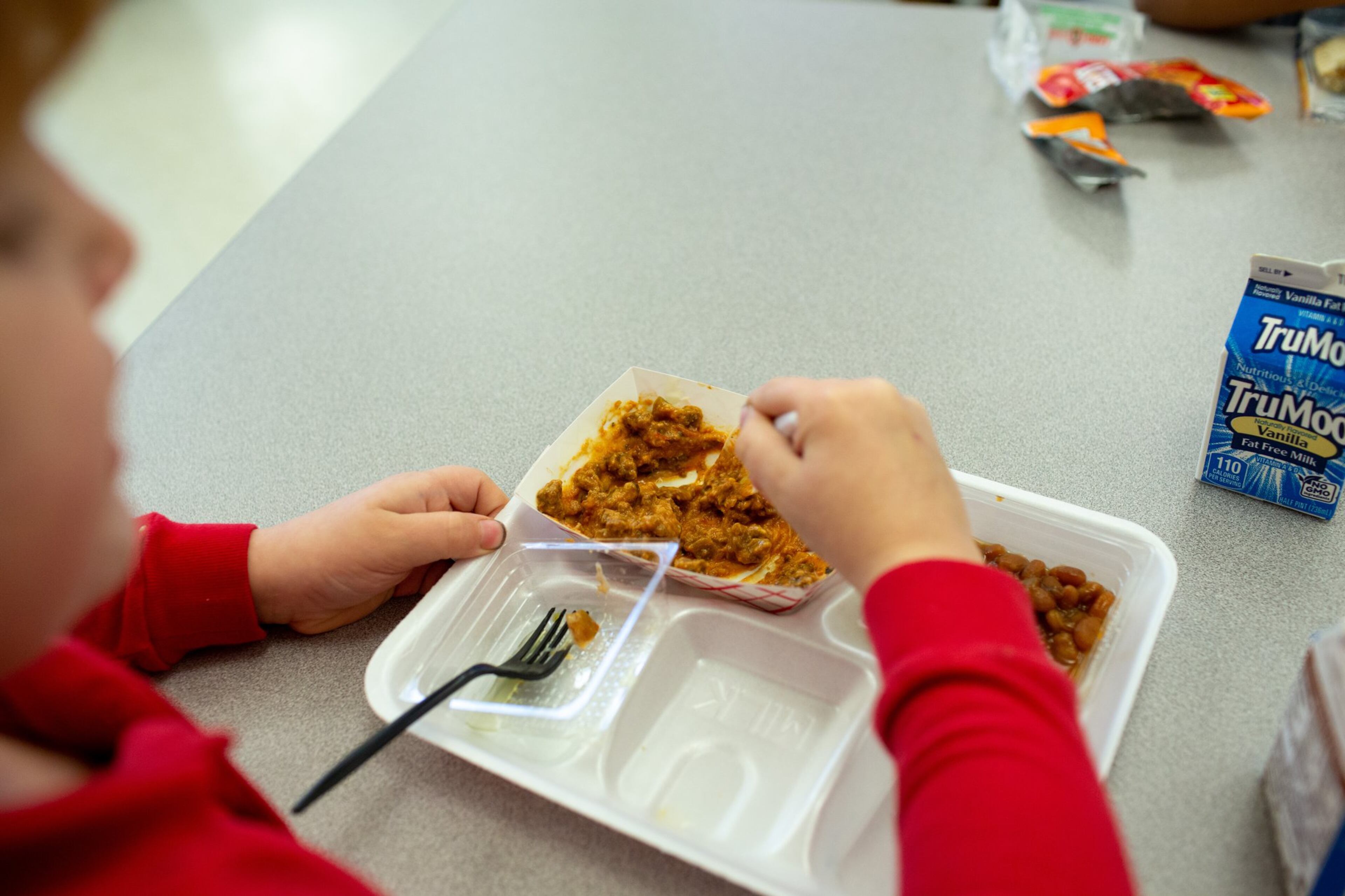Want to help pay off students’ school lunch debt? Here’s how to do it

Gwinnett County may be a booming Atlanta suburb known for business and growth, but beneath the bustle are families who struggle.
For evidence, look at school cafeterias, where lunch debt has been piling up, as documented in a January Atlanta Journal-Constitution report.
“Although we’re living in a huge time of plenty, we also know that the gap between those who are doing well and those who are struggling is growing,” said Scott Mawdesley, outreach director at 12Stone, a church with campuses in Gwinnett and nearby counties.
With Christmas approaching last year, he rallied churchgoers to help, raising about $60,000 toward school meal debt. Most went to pay off what parents owed in Gwinnett schools, though parents in other counties also benefited. More recently, the AJC article showed many metro Atlantans are eager to help.
School nutrition programs typically operate like independent nonprofits. They must run a zero balance, so they can’t just waive the bills. In some districts, poverty is so pervasive that schools can benefit from federal programs that subsidize free meals for all students. Wealthier districts can bail out their nutrition programs with taxpayer dollars from the general fund, though that leaves less available for classrooms.
Districts that are neither poor enough for the federal programs nor wealthy enough to handle significant debt struggle the most. Many metro Atlanta districts are in that category. When parents fall behind, districts, with an eye on the bottom line, typically serve children cheaper “alternate” lunches, such as a cheese sandwich. That is nutritious but, said Mawdesley, “is not a full lunch.”
A similar sentiment drove a recycling company and other donors in Cobb County to contribute money to the Marietta City Schools, as the AJC reported. That district, buoyed by economic growth and development that tipped incomes just a little bit too high, had to drop out of a federally funded universal free lunch program. That exposed many parents to school lunch debt for the first time in years. Marietta’s plight is not uncommon in a state where a fifth of the children reportedly have limited or uncertain access to adequate food.

The AJC article triggered emails from readers who were troubled by the plight of these families and wanted to help.
“It’s sad to see how some of these kids live,” said Patricia Gordon, an accountant in Gwinnett who taught in public schools in the 1970s. “You take it for granted that everyone can have a hot lunch. There’s no way they can learn if they’re hungry.”
Gordon asked how she could donate. She and others like the idea of contributing to schools and families in their communities, but couldn’t figure out how to do it. That’s understandable; there are 180 school districts in Georgia, and all of them do things differently.
So the newspaper contacted a dozen metro Atlanta school districts to ask how donors can pay off meal debt.
HOW YOU CAN HELP
Atlanta: Has a new universal free meal program, but may have lingering debt from before the program's introduction last fall. Go to bit.ly/37dq0yJ.
Buford: The school district said it had no debt because of recent donations.
Cherokee County: Go to bit.ly/CCSDdonate.
Clayton County: Has had a universal free meal program for years, so has no debt.
Cobb County: Contact Felicia Wagner, executive director of Cobb Schools Foundation, Felicia.Wagner@cobbk12.org and Angela.Reed@cobbk12.org (please email both), 770-426-3390.
Decatur: Contact Noel Maloof, executive director of operations, at nmaloof@csdecatur.net.
DeKalb County: Email School_Nutrition@dekalbschoolsga.org, and complete a donation form at dekalbschoolsga.org/school-nutrition/community-partnerships.
Fayette County: Contact a school's cafeteria manager when seeking to donate only to that school; otherwise, contact Kokeeta Wilder, the district's school nutrition program director, at wilder.kokeeta@mail.fcboe.org
Forsyth County: Go to forsyth.k12.ga.us/dine.
Fulton County: Contact Joricia Phillips, phillipsj@fultonschools.org, 470-254-2226.
Gwinnett County: Contact a school directly when seeking to donate only to that school or a student there. Otherwise, contact the school nutrition program, 678-301-6246; Ken Yant is the executive director.
Marietta: Go to marietta.revtrak.net/marietta-city-schools/#/v/lunch-angel, or contact their "Lunch Angels" program through Kim Blass, director of external affairs, at kblass@marietta-city.org.
If a district is not listed, call its central office.



